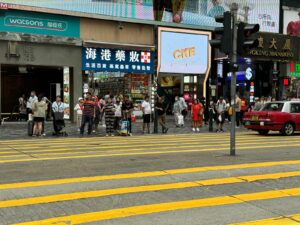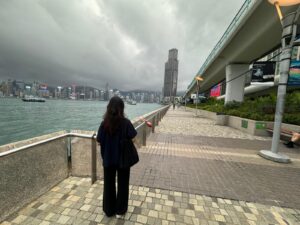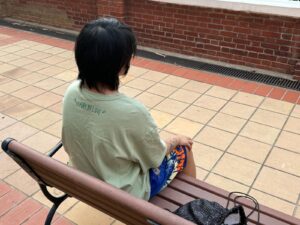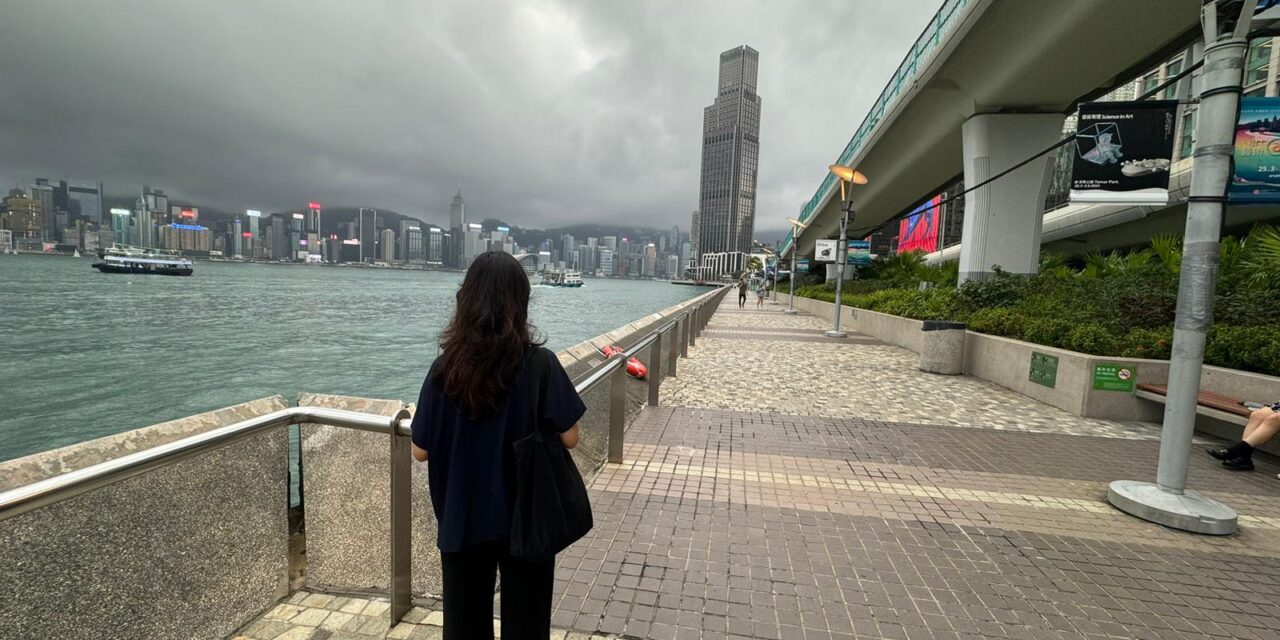By Jay Ganglani
HKU Journalism and Media
HONG KONG – On a Saturday a few years ago, Artha, a Kenyan woman, was nearly raped by someone she thought she could trust. When she woke up the next day, she couldn’t move.
When Damien, a Filipino-Nepali transgender man, was just 11-years-old, he was groped by a man in his 40s that he met on the street. Two years later, he attempted to commit suicide.
Jennifer, a Nepali woman, was on an evening jog at the Tsim Sha Tsui Promenade when she sensed something wrong. She turned around and saw a man standing there with his penis out and masturbating.
Only one of these three victims of sexual abuse reported their incident to the police. The other two chose not to follow up. That’s not uncommon among Hong Kong’s ethnic minority community, according to experts.
For decades, Hong Kong’s ethnic minorities, especially those from the older generation, have remained silent about sexual abuse due to fears of getting the perpetrators, often members of their own community, in trouble, or because of worries about how others and the wider society would view them if they decided to speak out, according to a well-respected NGO that’s familiar with this matter.
“They didn’t want to take any legal route. They didn’t want to actually go for any action or even report to the police,” said Shilpa Patwardhan, a lead counselor at the Zubin Foundation, an NGO that has worked with over 300 survivors of abuse from various ethnic minority groups in Hong Kong.
Artha, Damien and Jennifer agreed to be interviewed after being contacted by this reporter because they said they hoped their stories might help other victims feel that they’re not alone.

Tsim Sha Tsui’s Chungking Mansions is home to many restaurants, shops, and businesses that are run and owned by members of the city’s ethnic minority community. Photo by Jay Ganglani
They are among an increasing number of people belonging to the younger generation from various ethnic minority groups in Hong Kong, who no longer want to stay silent about experiences of sexual harassment and assault.
But even those who speak out continue to face problems, including dealing with the stigma and pressure that comes with revealing such a traumatic experience, especially when it comes to exposing preparators from their own communities or even their own family.
Who are Hong Kong’s ethnic minorities?
According to the 2021 Population Census, there were just under 620,000 non-Chinese people living in Hong Kong, accounting for about 8.4% of the population. Among the non-Chinese population, Indonesians and Filipinos make up the majority, with over 340,000, and most of them are migrant workers.
Another major group of ethnic minorities are those born and raised in Hong Kong, including Indian, Pakistani and Nepali families that settled here during British colonial rule and have lived in the city for multiple generations.
Some of the common challenges those from ethnic minority communities face include language barriers, which often result in limited job opportunities available to them, according to a report by the Equal Opportunities Commission.
Culture of silence
When it comes to sexual abuse, admitting that one has been exploited can be difficult, according to the Zubin Foundation.
“It’s very difficult to admit that, okay, I have been abused, or I have been harassed. It’s a big trauma,” said Patwardhan.
She said this is also true for ethnic minorities, because survivors are often not believed.
NGOs such as RainLily and Teen’s Key are among the main groups in Hong Kong that help survivors, but according to RainLily, very few people from the ethnic minority community seek help from them, and Teen’s Key is not equipped to provide any service to ethnic minorities.
Ethnic minorities make up between 2 to 5% of individuals that reach out to RainLily, a sexual violence crisis centre, said Vince Chan, a communication officer at the organization.
Teen’s Key, a non-profit organization that is dedicated to helping young women in Hong Kong gain access to information about sexual and reproductive health and give them the support that they need, said that they have never served any non-Chinese women in the city, despite many having nowhere else to turn to.
“Due to resource constraints, [including a lack of trained staff that can meet the needs of the ethnic minority community], we haven’t been able to serve non-Chinese young women,” the group said in an email response.

Artha says that black women are often harassed by their own African brothers in Hong Kong. Photo by Jay Ganglani
Why don’t survivors report their cases?
Apart from a fear of being shamed by the community and the stigma that’s associated with sexual abuse, most perpetrators tend to be someone that the survivor once trusted, according to the Zubin Foundation. This can be a family member or a close friend, making it all the more difficult for the victim to report a case.
According to a RainLily study, peers or friends were the most likely perpetrators of rape, accounting for about 36% of cases. A family member, meanwhile, had an over one in four chance of being the person that committed an act of indecent assault.
“Majority of them had the perpetrators were actually within the family [or friends],” said Patwardhan.
In one case that Patwardhan worked on, a survivor had the courage to speak out against the perpetrator, who happened to be a family member. The survivor went on to tell someone in the family that they trusted, but no further reporting to the police took place, she said. Instead, the survivor and perpetrator were simply separated from one another so that the abuse would not be repeated.
This is largely due to the embarrassment that reporting such an incident would bring to the entire family, especially in small ethnic minority communities where people tend to know each other and gossip can spread quickly.
“Emotional support, counseling, [and] processing is very important [for a survivor],” Patwardhan said.
The stories of 3 survivors
An asylum seeker
Artha is a Kenyan asylum seeker who has been living in Hong Kong for seven years.
She’s unemployed and moved to the city after being targeted for criticizing government officials in her work as an activist in Kenya.
Artha is a pseudonym. She doesn’t want to be named due to fears of being identified.
On a Saturday in 2019, as Artha was returning home following a trip to Central, a man, who is also an asylum seeker from Africa whom she knew and trusted, asked her for a lift in the taxi. She decided to help the man, who also happened to be the cousin of a former boyfriend. She was a little tipsy from drinking alcohol and let him take her up to her flat.
The following day, Artha woke up with pain all over her body as she lay in bed. Artha does not wish to identify the man.
“I know he didn’t rape me because if he raped me I could have felt it. But it’s because I fought with him so much [that he didn’t rape me],” said Artha, as she wiped her tears recounting the incident.
She asked a close friend to check on her, and they discovered bruise marks all over her body, as well as a bite between her legs. At a hospital, tests proved to be inconclusive as she had already taken a shower.
Artha decided to go to the police station but chose not to file charges against the man as he was also an asylum seeker and she was afraid that he would be deported.
She also feared for her own safety, as someone seeking political asylum in the city.
“I think I was just tired. I was depressed. I was worn out. I didn’t want this guy also to be [in] problems. I didn’t want police issues,” she said.
A transgender man
Damien is a transgender man who is currently making the transition from female to male. He comes from Filipino and Nepali heritage but was born and raised in Hong Kong.
He prefers being identified only by this name, due to worries of what telling his story could have on his future.
He’s endured numerous experiences, including being asked to undress by a close friend, being groped by a stranger, and having to deal with inappropriate touching from a family friend.
One incident took place when Damien was 6-years-old and a 40-year-old man, who was friends with his mom, picked him up from school one day. Under the pretense of helping Damien with his English homework, the man began to touch him inappropriately in the chest and guided the child’s hand towards his crotch.
Oftentimes, in ethnic minority households, issues such as sexual abuse are brushed under the carpet, and being quiet is encouraged, in order to maintain one’s respect among other ethnic minority families in the city, according to Damien, who only wants to be identified by his surname.
“The idea of speaking out is something that’s unfortunately foreign to a lot of these [ethnic minority] parents,” he said.
Damien never sought the professional help that he needed, due to other issues that he had to deal with, including childhood trauma and a suicide attempt. He also never reported any of his three incidents. He preferred to try to forget about them.
A local Nepali woman
Some people like Jennifer, however, are beginning to speak out.
Jennifer, a 27-year-old Nepali program manager at an NGO that works with ethnic minorities, is also not using her real name, due to fears of being shamed in her community.
When she was about 12-years-old, she would be the only student asked to stay after class by a male teacher and he would make what she found to be inappropriate comments about her school uniform getting shorter. The teacher also came from an ethnic minority background.
One day, as the teacher was collecting assignments to mark, he wrote a note for Jennifer, saying he was crazy about her, and placed it inside her workbook. The teacher was never punished, despite people at the school being aware of his behavior.
In 2017, while on an evening jog at the Tsim Sha Tsui Promenade, she felt a presence behind her. It was a man in his 30s with his pants down, masturbating in her presence.
Jennifer was disgusted. The man began to run away. She chased after him while being on the phone with the police.
Jennifer decided to give a police statement. The man was never caught but the police have increased their presence, with more officers patrolling the area.
“That was my favorite spot and I felt like someone came in and took away that joy,” she said.
At first, Jennifer couldn’t tell her conservative Nepali parents what happened and was particularly concerned at how her father would react because of his protective nature. But she knew she had to say something though, given that she had been away from home for two hours.
“I had to briefly tell them what happened, but I only told them the half truth. It was so uncomfortable telling my parents about it,” said Jennifer. “Especially as a daughter, how do I explain this to my dad?”
After eventually telling both of them what happened, they never spoke of the incident again.
But she felt good about reporting it to the police.

Jennifer takes a walk at the Tsim Sha Tsui Promenade and stands in the exact spot where she was running at the time of the incident. Photo by Jay Ganglani
What’s being done about the problem?
Since December last year, the Hong Kong government has joined hands with the Zubin Foundation to work on the Ethnic Minority Well-being Centre, an initiative that provides free counseling services in English, Hindi, Urdu, and Nepali. The launching of the center was announced during the Chief Executive’s Policy Address in 2022. It will operate on a trial basis to provide emotional support and counseling for ethnic minorities.
During one-to-one sessions, counselors conduct a personal assessment of an individual. The ultimate goal is for the client to have a better understanding of oneself and to be able to speak about one’s feelings and relationships, according to the center.
Apart from support from the government and NGOs, many in the community are also turning to social media, as an outlet to express their grief and anger.
One popular Instagram page, known as ‘HK EM Confessions,’ set up in August 2020, has over 5,300 followers and allows those from the ethnic minority community to anonymously post all sorts of stories, including those related to sexual harassment and abuse. Followers of the page often leave comments, while reacting to the posts.
“He tried sending inappropriate photos to my friend and she felt so creeped out and traumatized by this asshole,” read part of a post that was posted on the page in February 2023.
“I wasn’t alone on the bed, the younger sibling was with me under the blankets. I recall him touching me inappropriately. I was barely 3 years old,” read part of another post on the page.
Other posts are often about cyberbullying, a lack of employment opportunities, as well as porn and drug addiction, among a host of other topics that affect the community.
What issues do survivors have to deal with after the incident?
Following an incident, there can be a conflict between what survivors and their families want, in terms of a course of action, according to the Zubin Foundation. This is often due to a fear of ruining the family’s name within the ethnic minority community.
One recurring theme among survivors is the question of whether they should pursue the case and take the legal route, particularly given the social stigma that’s associated with sexual assault.
“If they don’t want to take [the] legal route, but still there is a lot of processing to be done emotionally, … because victims might start blaming themselves,” Patwardhan said.
While none of the three victims mentioned above actually went through the legal procedure of taking their perpetrators to court, that doesn’t mean that the incidents haven’t had a significant impact on their lives.
The ability to trust men, for one, has become a major issue for both Artha and Jennifer.
“I’m just scared of men,” said Jennifer.
Artha, meanwhile, says that it’s more difficult for her to be with a man and that it takes much longer to trust someone after everything that she’s been through.
“I just feel very hyper aware of the people around me, especially [the] men around [me],” she said.
For Damien, incidents of being abused led to a porn addiction and inappropriate speech, which included making jokes about being assaulted at school.
“I didn’t explicitly seek help. My behavior alarmed a lot of my friends in secondary school,” said Damien. “They used to mock me for it.”

Damien believes that sexual education at the city’s schools is vital, in terms of educating people from a young age of what is and isn’t acceptable. Photo by Jay Ganglani
How do the survivors cope today?
Despite the trauma and trust issues that the sexual assault experience brought Artha, it also motivated her to create an online support group for men and women who have gone through similar experiences. The goal of the group is to motivate and empower survivors, she said.
“I used to hear all these stories. It’s helping you heal because you’re talking about it, but you’re not really free,” says Artha, adding that it takes time to work on oneself and that childhood trauma was a common factor among the people that she tried to help.
Artha began the Facebook group during the pandemic, a period during which sexual violence against women increased, according to a report commissioned by the Equal Opportunities Commission.
When it comes to cases of sexual abuse among the local ethnic minority community, the Zubin Foundation believes that the most important thing that a loved one can do for a survivor, is to listen and not judge them, particularly given how many ethnic minority families often neglect such issues.
“We can all imagine [that] if something happens and someone reports it to you, it’s very easy to judge,” said Patwardhan.
But “(we) have to restrain from judging, from blaming. Let them talk about it. It’s the most important thing,” she said.
Advisor: Cindy Sui

